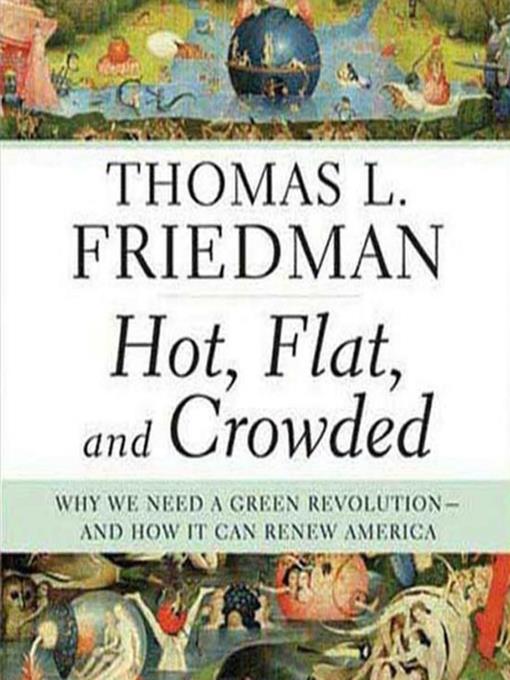
Hot, Flat, and Crowded
Why We Need a Green Revolution—and How It Can Renew America
کتاب های مرتبط
- اطلاعات
- نقد و بررسی
- دیدگاه کاربران
نقد و بررسی

Starred review from September 29, 2008
At the intersection of leveled economic and technological access (flat) with an aggravated environment (hot) and a surging population (crowded), Friedman stands behind his pulpit as preacher, prophet and promoter of a green revolution starting in the United States. He provides an exhaustive and convincing argument about the need for the United States to transition to more sustainable systems of energy soon or risk any possible chance of maintaining hegemony. His ability to identify and summarize succinctly the issues and controversies over resistance to a green revolution is matched by his clear and definitive solutions to these forthcoming problems. Oliver Wyman provides a congenial and gentle voice that works well with the text. Given its overwhelming nature, Wyman performs without a hint of condescension. He navigates quotes within the text with distinguishing voices that sometimes hints at personality traits not referred to in the text. Impressively, Wyman keeps a consistency of cadence and tone throughout the entire reading. A Farrar, Straus & Giroux hardcover.

Erratic climate change, ever-increasing global consumer demands, and an ever-increasing world population (hot, flat, and crowded) are the greatest challenges the world has to face in the twenty-first century. Thomas Friedman is not interested in sounding an alarm. He's calling to arms America's good old, though slightly dormant, entrepreneurial and inventive spirit. Narrator Oliver Wyman deftly reflects Friedman's intelligence, passion, and, perhaps most importantly, impartiality when discussing such hot-button issues as Middle Eastern petro politics, third-world deforestation, and China's skyrocketing demand for energy. Wyman's voice is at its brightest when calling for a new, out-of-the-box green patriotism, reflecting Friedman's belief that the United States can and should be the world's leader in finding the "tools, systems, energy sources, and ethics" to create a world we can live in for centuries to come. B.P. (c) AudioFile 2008, Portland, Maine

September 8, 2008
Pulitzer Prize-winning New York Times columnist Friedman (The World Is Flat) is still an unrepentant guru of globalism, despite the looming economic crisis attributable, in Friendman's view, to the U.S. having become a "subprime nation that thinks it can just borrow its way to prosperity." Friedman covers familiar territory (the need for alternate energy, conservation measures, recycling, energy efficiency, etc.) as a build-up to his main thesis: the U.S. market is the "most effective and prolific system for transformational innovation.... There is only one thing bigger than Mother Nature and that is Father Profit." While he remains ostensibly a proponent of the free market, he does not flinch from using the government to create conditions favorable to investment, such as setting a "floor price for crude oil or gasoline," and imposing a new gasoline tax ($5-$10 per gallon) in order to make investment in green technologies attractive to venture capitalists: "America needs an energy technology bubble just like the information technology bubble." To make such draconian measures palatable, Friedman poses a national competition to "outgreen" China, modeled on Kennedy's proposal to beat the Soviets to the moon, a race that required a country-wide mobilization comparable to the WWII war effort. Recognizing the looming threat of "petrodicatorship" and U.S. dependence on imported oil, this warning salvo presents a stirring and far-darker vision than Friedman's earlier books.

























دیدگاه کاربران